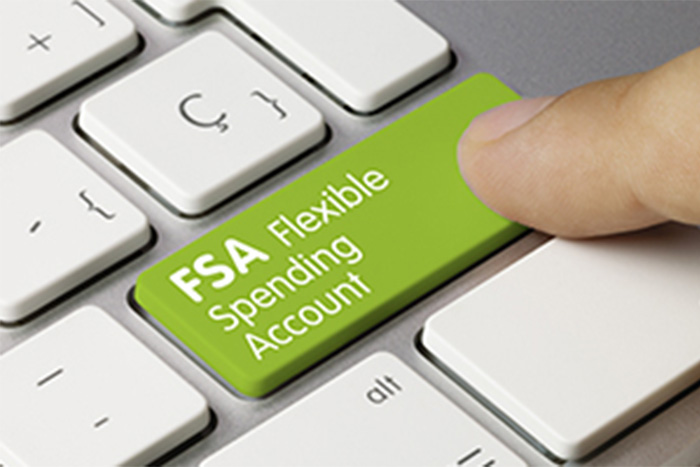You need the right hearing aids to fit your unique needs and ensure effective hearing loss treatment. Unfortunately, hearing aids may not be covered by health insurance or Medicare.

That’s where Heath Saving Accounts and Flexible Spending Accounts come in because the funds in these accounts can help cover hearing aid expenses. FSAs do not roll over into the new year, so use the funds while you can.
What is an HSA/FSA?
HSAs and FSAs are savings accounts that may be used to pay the cost of qualifying medical expenses. The Internal Revenue Service recognizes hearing aids, batteries, and repair expenses as medical expense deductions covered by these accounts.
Here are a few differences between HSAs and FSAs.
HSA: Health Savings Accounts are employed through a high-deductible health insurance policy. You make your deposits into these accounts and can only withdraw from the funds you’ve previously contributed. The money rolls over year-to-year, so you don’t have to rush to find your hearing aids.
FSA: These accounts are like HSAs but are funded through payroll deductions. FSAs have structured contribution schedules, but the funds do not roll over each year.
Benefits of Paying for Hearing Aids with HSA
You can reduce your out-of-pocket expense by using an HSA to pay for hearing aids, even if your insurance doesn’t cover them. HSA funds are available right away, so you can purchase your hearing aids at your convenience.
Most of these accounts have debit cards, which makes paying for your hearing devices even more effortless. And since these accounts roll over every year, you can continue to save money for hearing aid batteries and maintenance.
Benefits of Paying for Hearings Aids with FSA
FSAs can similarly cover the cost of additional expenses, like hearing evaluations and devices. Using the funds in these accounts can eliminate the worry of finding the money to purchase top-rated hearing aids.
Unlike HSAs, your yearly total is available for immediate use. If you’re ready to buy hearing aids now, you won’t have to worry about waiting to save money.
What Audiology Services are Covered by HSAs and FSAs?
Certain audiology services are covered under some insurance plans. Still, the cost of hearing aids is usually out-of-pocket, which makes FSAs and HSAs extremely beneficial if you have hearing loss.
The following items are covered by FSA and HSA funds:
- Hearing aids and medical expenses associated with their maintenance, including repairs and hearing aid batteries
- TV adapters and other equipment that displays audio as subtitles for the hearing impaired
- Cost of schooling to teach lip-reading to a hearing-impaired child
- Special telephones and repair services that support easier communication for the hearing impaired
Did You Know Hearing Aids are Tax Deductible?
Expenses associated with treating your hearing loss are considered tax-deductible because it’s a medical condition. Hearing aids are regulated by the U.S. Food and Drug Administration, so you may be able to deduct the cost from your taxes.
Deductions include the cost of diagnosis, treatment and transportation to your appointments. That may include public transportation expenses or the costs associated with the upkeep of your personal vehicle that you used to get to your audiologist’s office.
Hearing aid wearers can donate their used hearing devices to Audio Help Hearing Center’s charitable partnership with Hearing the Call for additional tax savings.
Use HSA/ FSA to Pay for Your Hearings Aids in NYC, Scarsdale or Stamford
We’ll help you determine your financial eligibility for high-quality hearing aids. Schedule your hearing test at any of our Audio Help Hearing Centers locations today. You can also take a free online hearing test from the comfort of your home.

